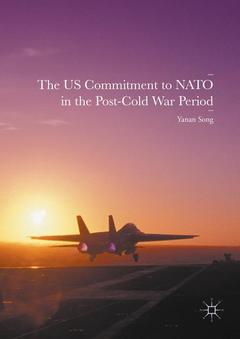Description
The US Commitment to NATO in the Post-Cold War Period , Softcover reprint of the original 1st ed. 2016
Author: Song Yanan
Language: English
Subject for The US Commitment to NATO in the Post-Cold War Period :
Approximative price 105.49 €
In Print (Delivery period: 15 days).
Add to cartPublication date: 08-2016
Support: Print on demand
Approximative price 52.74 €
In Print (Delivery period: 15 days).
Add to cartPublication date: 05-2018
Support: Print on demand
Description
/li>Contents
/li>Biography
/li>Comment
/li>
Yanan Song received her PhD from the School of Government and International Affairs at Durham University, UK.
Offers new insight into the economic pressures of and domestic US debates about post-War on Terror interventions of the Obama administration through an analysis of the Libyan mission
Presents a variety of theoretical approaches - alliance theory, bureaucratic politics theory, realism/liberalism - to explain why the US remains committed to the NATO alliance in the post-Cold War era
Speaks to academics and scholars, as well as contemporary commentators in the media and interested parties




